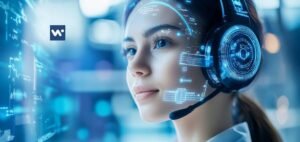Inspiring Maritime Growth!
The maritime sector has long served as the backbone of global trade, facilitating the efficient movement of goods across continents and driving economic interconnectivity. As the industry expands, it incorporates modern innovations that boost efficiency and promote robust economic growth. Advances in artificial intelligence and automation are transforming traditional operations, enabling real-time data analysis for predictive maintenance and optimizing resource allocation, all of which lower costs and enhance productivity. This progress reinforces the sector’s pivotal role in propelling global economic development, underscoring its capacity to adapt, innovate, and remain a cornerstone of international commerce.
Oliver-Andreas Leszczynski, Deputy Chairman & Director of Artificial Intelligence at the INER Institute of Northern-European Economic Research, has emerged as a thought leader in advancing this transformation. Recently appointed as the Chairman of the World Intelligent Process Automation Summit and the Greentech in Shipping Forum North America, he demonstrates a relentless drive to redefine industry standards. His leadership is characterized by a commitment to integrating advanced technologies and cultivating collaboration, ensuring that the maritime sector remains adaptable and resilient amidst changing global dynamics. Leszczynski’s focus on creating synergies between technological progress and strategic foresight inspires confidence in the potential for sustained growth and innovation.
The INER Institute of Northern-European Economic Research is leading the way in advancing maritime research and development, driving impactful changes through expertise and innovation. The institute prioritizes comprehensive studies that address critical industry challenges, ranging from intelligent automation to sustainable practices. By nurturing partnerships with key stakeholders, INER ensures its initiatives align with the industry’s growing demands and global sustainability goals. Through its dedicated efforts, the institute exemplifies a commitment to shaping the maritime sector’s future, positioning it as a catalyst for innovation and growth.
Let’s explore Leszczynski’s vision for a sustainable and resilient maritime sector:
Strategic Models for Global Scalability
From his earliest professional ventures, Leszczynski was captivated by the power of open-ended, market-driven innovation to catalyze progress and prosperity. Even during his initial forays into consulting and digital transformation, he recognized that the traditional structures of many industries, particularly the maritime sector, were burdened by inefficiencies that could be dramatically reduced through rigorous optimization strategies. Rather than accepting established paradigms, he sought to reevaluate processes holistically, applying a blend of quantitative insight, economic reasoning inspired by thinkers like Hayek, and a general refusal to settle for “good enough.”
This drive to constantly push boundaries stems from a core belief that technology should serve as an engine of creativity and a validator of market forces. In line with the Austrian economics principles, he has always prioritized the freedom to experiment and compete, trusting the market to reward solutions that genuinely innovate.
Identifying optimization opportunities early on allowed him to be nimble, constantly testing, refining, and perfecting processes. This method, reminiscent of the free-market approach to innovation, became the bedrock of his philosophy: continually challenge inertia, embrace an iterative mindset, and rethink AI strategies to achieve efficiency gains on a global scale.
Moreover, his early experiences taught him that refusing to think in “fixed paths” is paramount for transformative success. Adhering too rigidly to pre-established methodologies often stifles the breakthroughs driving industries forward. He could carve out strategic models that champion continuous learning, iterative design, and global scalability by consistently questioning norms and integrating business acumen and technical expertise.
This orientation solidified his passion for pushing the limits of digital transformation and positioned him as an advocate for an environment that mirrors the entrepreneurial culture, where the best ideas can be tested in real-world market conditions and swiftly scaled for maximum impact.
Strategic Commitment to Intelligent Industrialization
One of the defining turning points in Leszczynski’s development was the realization that an intelligently architected AI framework could revolutionize entire economic systems. Much is said about “Industry 4.0,” but he remains convinced that the era of genuinely intelligent industrialization is still ahead, one that demands not just technological readiness but also a deliberate and far-reaching strategic commitment.
This insight came through years of observing how traditional, rigid models stifle fundamental transformation. AI is neither a mere buzzword nor an effortless plug-and-play tool; it is a conscious and powerful decision that must be embraced wholeheartedly, with clearly defined objectives and unwavering executive sponsorship.
In Leszczynski’s view, a successful AI revolution, especially within the maritime sector, requires a consistent, forward-looking strategy that cascades across all business processes and organizational hierarchies. Any half-hearted approach inevitably leads to underwhelming outcomes, whereas a comprehensive strategy harnesses the market-driven dynamism essential in economic thought. This conviction aligns with and underscores decentralized knowledge and the power of free markets in driving genuine innovation. When those principles intersect with robust AI frameworks, the result is a confluence of predictive analytics, market intelligence, and technical ingenuity that can propel industries far beyond the limits of conventional automation.
A second key moment that shaped his approach was his father’s influence, who instilled in him the importance of critical thinking and the unwavering determination to “look beyond the obvious.” He encouraged him early on to step ahead of the status quo. That foundational principle remains central to his professional outlook: never accept current paradigms at face value but always ask how we can improve.
By applying this mindset to AI and digital transformation, he has spearheaded initiatives that marry market-centric reasoning with advanced technological vision. In so doing, he can advance not just the maritime industry but also fundamentally alter how businesses conceive of productivity, competitiveness, and efficiency on a global scale.
Empowerment and Informed Decision-Making
His leadership philosophy stems from the belief that innovation thrives at the intersection of rigor, foresight, and bold action. For him, effective leadership requires understanding the foundational aspects of industries, such as manufacturing, maritime logistics, and broader economic systems, alongside the transformative potential of emerging technologies.
In Leszczynski’s perspective, leadership involves anticipating how societal, technological, and market dynamics might reshape competition. This anticipation requires assessing diverse data points, identifying key variables, and determining strategic directions that promise long-term success. Even when certain market truths seem apparent, true visionaries discern subtle changes, calibrate their approach accordingly, and act decisively.
A key principle he values is empowerment through informed decision-making. He challenges the misconception that leadership should rely on autocratic direction or rigid hierarchies. Instead, he advocates for organizations that harness individual initiative toward collective goals. When team members clearly understand strategic objectives, they become motivated to solve problems autonomously, offering diverse solutions.
This approach enhances adaptability, resilience, and the ability to respond intelligently to market developments. Therefore, leadership is less about dictating outcomes and more about cultivating an environment where data-driven, forward-thinking individuals can collectively thrive.
Leszczynski places great importance on personal accountability and collaboration. Accountability, for him, hinges on clarity—ensuring every team member understands their role and its contribution to overarching goals. This clarity nurtures responsibility and a healthy culture where benchmarks align everyone’s efforts. At the same time, collaboration is essential, given that industrial and technological challenges are rarely confined to a single domain. For instance, in the maritime sector, introducing AI systems can impact engineering, logistics, procurement, and customer service. Effective leadership orchestrates these interdependencies so innovations in one area spark positive organizational transformations.
A guiding principle for him is the integration of strong economic reasoning into leadership. While adapting to technology and trends is essential, he highlights those fundamental economic principles—like the interplay of supply, demand and entrepreneurial discovery—remain necessary. Combining intelligent AI deployment with these principles unlocks growth opportunities.
His decision-making process is rooted in the belief that decentralized knowledge and creative competition drive progress. Rather than micromanaging, he structures processes that empower experts to innovate, cultivating iterative improvements that enhance efficiency, cost-effectiveness, and competitiveness.
Leszczynski believes industries steeped in tradition, such as maritime manufacturing, face a turning point. Organizations can either cling to outdated practices or embrace AI-driven transformation guided by comprehensive plans spanning all levels of operations. This integration should articulate the tactical advantages of AI, like predictive maintenance and automated logistics, while reimagining the industry’s structure and value proposition. He sees this cohesive vision as central to ensuring AI catalyzes meaningful change, not just a supplementary tool.
A final element of his philosophy is a commitment to intellectual curiosity. Inspired by early influences to question norms and seek improvement, he stresses continuous learning at the intersection of economics, technology, and global affairs. This involves staying informed, engaging with experts, and identifying market shifts that could disrupt traditional models. By cultivating curiosity within his teams, he ensures they remain adaptive, experimental, and innovative.
His approach integrates intellectual rigor, empowerment, strategic clarity, and dedication to progress. By embedding these values, organizations excel in using data intelligently, nurturing collaboration, and embracing thoughtful change. For him, effective leadership creates a mosaic where innovation and strategic excellence drive enduring results.
Fusion of Outcomes and Cultural Shifts
Leszczynski measures success through a multifaceted lens beyond traditional metrics like profitability and efficiency gains, though these are undoubtedly essential indicators. Tangible outcomes, such as improved production timelines, higher output quality, and stronger market performance, help validate that a transformation is working. Yet, to him, the deeper measure of success lies in the process and the new mindset within an organization.
If a transformation effort encourages a proactive culture where experimentation is welcomed and data-informed insights guide critical decisions, he sees that as evidence of genuine progress. Well-crafted key performance indicators, aligned with strategic goals, can highlight immediate gains. Still, a genuinely lasting transformation is reflected in how seamlessly teams adapt to future challenges and pivot as market demands fluctuate. In other words, if an organization’s newfound agility and entrepreneurial thinking persist long after a particular project concludes, that speaks volumes about the transformation’s real depth.
Something more intangible is also at play: the synergy between decentralized decision-making and a unifying strategic vision. When professionals at every level begin to feel ownership of the process and gain confidence in their ability to influence the outcome, the collective intelligence of the enterprise rises. This collaborative dynamic cannot be precisely quantified, but it’s often the best indicator of whether a transformation has unlocked lasting value.
Moreover, success can be measured by how well an organization internalizes the idea that improvement is never final. One of the most powerful legacies of any transformation is a permanent shift in mindset, an enduring willingness to challenge existing assumptions, embrace technological progress, and see new opportunities where others see roadblocks. When the organization views continuous optimization not as a burdensome requirement but as a natural by-product of its day-to-day operations, it knows the transformation has taken root.
Ultimately, authentic, sustainable success is defined by the fusion of measurable outcomes, adaptive processes, and intangible cultural shifts.
Intelligent Automation and Entrepreneurship
He anticipates that several interconnected trends will shape the coming decade, accelerating the others and redefining how industries compete, create value, and grow. Among these, the further maturation of AI promises to be the most significant.
As algorithms progress to handle increasingly intricate tasks, ranging from advanced decision-making in manufacturing to self-organizing logistics networks, a level of efficiency and ingenuity previously reserved for speculative fiction will be seen. This phenomenon will likely trigger a ripple effect across supply chains, fueling new business models centred on real-time data and predictive insights.
Leszczynski highlights another key area: the expansion of immersive digital environments and “digital twins.” As simulation capabilities improve, entire operations can be replicated in virtual settings, allowing stakeholders to identify bottlenecks, test variables, and optimize processes before making real-world investments. For example, digital twins could revolutionize ship design, route optimization, and even maintenance schedules in the maritime domain, significantly reducing trial-and-error expenses.
Alongside these technical advances, resource acquisition will take on heightened importance. As industries increasingly compete for critical materials, whether for new types of batteries or specialized alloys, exploring untapped frontiers such as deep-sea mining will gain prominence.
When coupled with robust AI-driven analytics, these ventures have the potential to reshape entire sectors by unlocking access to strategic reserves previously considered unfeasible to explore. This push for new resources will be guided, in no small part, by fast-evolving private-sector dynamics as entrepreneurial efforts seek profitable margins in areas once dominated by major conglomerates or government-run entities.
Finally, converging intelligent automation with decentralized decision-making models will spark a fresh wave of entrepreneurship, generating a marketplace where agility and adaptation are paramount. Organizations, be they established giants or lean start-ups, that seize upon these transformative trends and align them with growing consumer demands stand to gain lasting competitive advantages. Over the next decade, these forces are poised to reshape the global economy, charting an era of innovation and structural evolution across industries.
Thriving in a Digitally Driven Environment
According to Leszczynski, excelling in a digitally transformed future begins with a commitment to perpetual learning and intellectual rigor. In a world where new technologies emerge faster than entire companies can adapt, individuals must possess a natural drive to remain on the cutting edge. This means regularly engaging with specialized research, refining analytical skills, and applying those insights to real-world challenges. Far from being a static checklist, knowledge must be viewed as a constantly evolving toolkit that professionals upgrade and adapt over time.
Equally important is the capacity to think in terms of systems rather than silos. Digital transformation operates across entire organizations and economic ecosystems, from the technical infrastructure supporting AI implementations to the broader supply, demand, and collaboration networks. Those who appreciate the interconnectedness of these components stand to identify gaps and synergies more swiftly, often well before they become either major hindrances or key opportunities. In highly competitive markets, the ability to spot such patterns can provide a decisive edge.
On a practical level, data literacy has become non-negotiable. Leaders and innovators who can translate raw information into actionable insights wield a distinct advantage. However, being data-savvy does not solely entail familiarity with tools and dashboards; it also involves understanding how markets and decentralized knowledge flows drive innovation. A culture that encourages evidence-based experimentation, iterative testing, and structured feedback loops can adapt quickly to changing conditions, ensuring that progress is measurable and sustainable.
Moreover, a balance between calculated risk-taking and disciplined strategy is invaluable. Digital transformation, particularly in domains like AI-driven manufacturing, demands a willingness to experiment with new models while maintaining a firm grasp of overarching objectives. Professionals who can steer this middle ground, setting audacious goals while respecting economic realities, tend to chart the most reliable paths to long-term impact.
Ultimately, thriving in a digitally driven environment requires an openness to possibility anchored by a grounded understanding of organizational and market dynamics. Those who cultivate this mindset, one blending curiosity, strategic vision, and rigorous execution, will be best positioned to harness digital transformation’s tremendous opportunities in the years ahead.
Leading Innovation in Industrial AI and the Maritime Industry
Oliver-Andreas Leszczynski is a distinguished German entrepreneur, AI strategist, and author of Polish origin. He is widely regarded as one of the world’s most prominent and influential thought leaders in industrial AI and the maritime industry. Globally recognized for his groundbreaking contributions, Leszczynski has earned acclaim for his innovative “3+1 Pillar Model for Industry 4.0” and his pioneering publications on AI-supported deep-sea mining.
He is a leading authority on artificial intelligence and innovation and a leader in technological transformation in the maritime manufacturing industry. As Director of Artificial Intelligence at the INER Institute of Northern-European Economic Research, he also heads the Artificial Intelligence and Innovation department. He serves as Deputy Chairman of the Institute.
Leszczynski’s illustrious career, spanning over 15 years, is underscored by a profound commitment to advancing AI applications within industries that are as traditional as they are essential. With a scholarly background in Political Science, Business Management, and Applied Artificial Intelligence, Leszczynski possesses an extraordinary blend of knowledge that seamlessly integrates challenging economic theories with cutting-edge technological methodologies.
In his roles at the INER Institute of Northern-European Economic Research and several private maritime companies, Leszczynski drives large-scale AI initiatives focused on modernizing manufacturing processes and pioneering digital transformation strategies. His expertise in data-driven solutions and automation has substantially impacted industrial practices, opening new avenues for business growth and operational efficiency.
He leads research on AI-supported deep-sea mining, highlighting his belief that the responsible adoption of emerging technologies can be a powerful catalyst for global progress. His forthcoming book on deep-sea mining reflects his dedication to sharing knowledge and shaping discourse in this fast-growing domain.
A staunch advocate of transatlantic partnerships, Leszczynski recognizes the pivotal role of international collaboration in collective innovation and strategic leadership. His efforts to integrate AI solutions across borders reflect his broader vision of uniting technology and economics for mutual benefit, highlighting that close cooperation between Europe and the United States is essential for global prosperity and security.
His dedication to advancing AI also aligns with his firm conviction in the Austrian school of economics—particularly the Hayekian principles of individual liberty, market-driven efficiencies, and limited but strategic government interventions. Leszczynski’s perspective merges economic liberalism with targeted investments in AI and digitalization, which he contends are key to sustaining a competitive edge in the world market.
Throughout his career, Leszczynski has proven adept at anticipating and shaping technological trends, especially within the maritime industry. His leadership style champions data-driven innovation and flexible, forward-thinking policy frameworks that can adapt to evolving market dynamics. By integrating advanced AI strategies at the organizational level, he has spurred transformative change in manufacturing processes, reinforcing the maritime sector’s global prominence.
Leszczynski’s influence extends beyond research and policy. He continues to occupy key strategic roles in private maritime enterprises, overseeing AI and data strategies that strengthen organizational competitiveness. He remains a fervent believer in the power of AI to revolutionize industrial ecosystems, seeking to empower companies and governments alike to harness technology’s full potential. As part of his broader mission, he envisions a future wherein AI and digitalization unite continents, catalyze industry-wide advancements, and create a cohesive, liberal economic field consistent with classical liberal thought.




